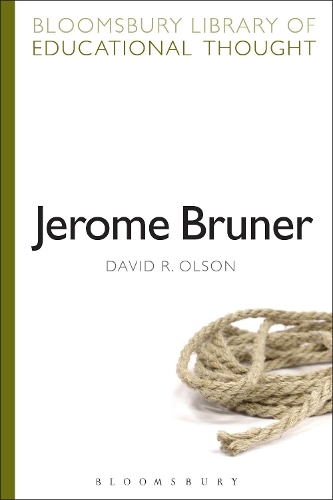
Jerome Bruner
(Paperback)
Available Formats
Publishing Details
Jerome Bruner
By (Author) David R. Olson
Series edited by Professor Richard Bailey
Bloomsbury Publishing PLC
Bloomsbury Academic
9th October 2014
United Kingdom
Classifications
Tertiary Education
Non Fiction
370.92
Physical Properties
Paperback
224
Width 156mm, Height 234mm
327g
Description
Jerome Bruner is the vanguard of the cognitive revolution in psychology and the predominant spokesman for the role of culture and education in the making of the modern mind. In this text Olson encourages the reader to think about children as Bruner did, not as bundles of traits and dispositions to be diagnosed and remediated, but as thoughtful, keenly interested, agentive persons who are willing and indeed able to play an important role in their own learning and development. Through the unique approach of combining commentary and conversation with Bruner, the author provides an insight into what it is like to engage with one of the intellectual masters of our time and highlights the relevance and importance of his contribution to educational thinking today.
Reviews
Olsons book on the work of Jerome Bruner is a deeply informed and incisively written gem... Olson - one of Bruners many influential students - makes sense of his work in a way that ties it to developments in psychology and education from the 1960s to the present. Olson relates Bruners work to that of John Dewey, and to his own views, which place more emphasis on schools as independent institutions. The result is a highly readable and informed account of developments in educational psychology and their relation to educational practice. -- Eric Bredo, University of Toronto, Canada
Author Bio
David R. Olson is University Professor Emeritus at Ontario Institute for Studies in Education, University of Toronto, Canada. He studied under Bruner at Harvard Universitys Centre for Cognitive Studies in the 1960s. Author or editor of 20 book and some 300 research articles, his work is best represented by two of his books: The World on Paper: The Conceptual and Cognitive Implications of Writing and Reading (1994) and Psychological Theory and Educational Reform: How Schools Remakes Mind and Society (2004).
